
Filter News
Area of Research
News Topics
- (-) High-Performance Computing (28)
- (-) Neutron Science (49)
- 3-D Printing/Advanced Manufacturing (43)
- Advanced Reactors (10)
- Artificial Intelligence (31)
- Big Data (7)
- Bioenergy (23)
- Biology (21)
- Biomedical (17)
- Biotechnology (7)
- Buildings (13)
- Chemical Sciences (28)
- Clean Water (2)
- Climate Change (22)
- Composites (10)
- Computer Science (58)
- Coronavirus (17)
- Critical Materials (11)
- Cybersecurity (17)
- Decarbonization (19)
- Education (3)
- Element Discovery (1)
- Energy Storage (42)
- Environment (35)
- Exascale Computing (9)
- Fossil Energy (1)
- Frontier (15)
- Fusion (14)
- Grid (15)
- Isotopes (18)
- ITER (2)
- Machine Learning (13)
- Materials (57)
- Materials Science (50)
- Mercury (2)
- Microelectronics (1)
- Microscopy (16)
- Molten Salt (2)
- Nanotechnology (26)
- National Security (18)
- Net Zero (3)
- Nuclear Energy (26)
- Partnerships (29)
- Physics (24)
- Polymers (12)
- Quantum Computing (9)
- Quantum Science (26)
- Renewable Energy (1)
- Security (11)
- Simulation (8)
- Space Exploration (3)
- Statistics (1)
- Summit (21)
- Sustainable Energy (30)
- Transformational Challenge Reactor (4)
- Transportation (25)
Media Contacts
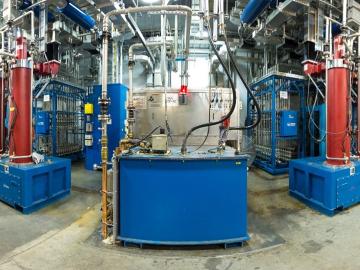
The Spallation Neutron Source at the Department of Energy's Oak Ridge National Laboratory set a world record when its particle accelerator beam operating power reached 1.7 megawatts, substantially improving on the facility’s original design capability.

ORNL’s Debangshu Mukherjee has been named an npj Computational Materials “Reviewer of the Year.”
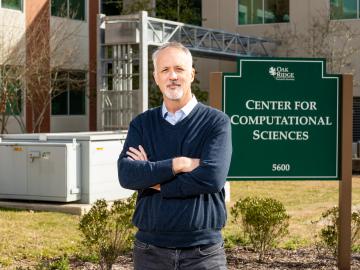
The Oak Ridge Leadership Computing Facility’s Matt Sieger has been named the project director for the OLCF-6 effort. This next OLCF undertaking will plan and build a world-class successor to the OLCF’s still-new exascale system, Frontier.

Shih-Chieh Kao, manager of the Water Power program at ORNL, has been named a fellow of the American Society of Civil Engineer’s Environmental & Water Resources Institute, or EWRI.
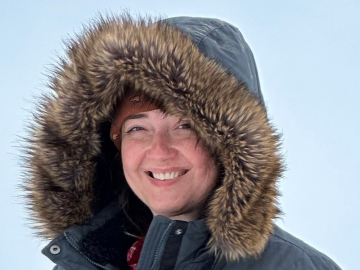
Colleen Iversen, ecosystem ecologist, group leader and distinguished staff scientist, has been named director of the Next-Generation Ecosystem Experiments Arctic, or NGEE Arctic, a multi-institutional project studying permafrost thaw and other climate-related processes in Alaska.
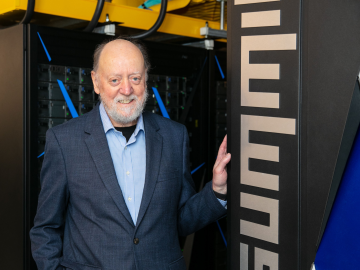
Computing pioneer Jack Dongarra has been elected to the National Academy of Sciences in recognition of his distinguished and continuing achievements in original research.
Xiao Wang, a research scientist at ORNL, has been named a senior member of the Institute of Electrical and Electronics Engineers, the world’s largest organization for technical professionals. Wang works in the lab’s Computing and Computational Sciences Directorate’s Advanced Computing for Health Sciences Section.

Paul Langan will join ORNL in the spring as associate laboratory director for the Biological and Environmental Systems Science Directorate.
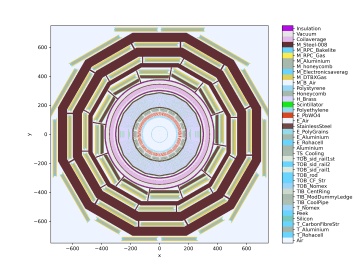
Scientists at the Department of Energy’s Oak Ridge National Laboratory are leading a new project to ensure that the fastest supercomputers can keep up with big data from high energy physics research.

While studying how bio-inspired materials might inform the design of next-generation computers, scientists at ORNL achieved a first-of-its-kind result that could have big implications for both edge computing and human health.


